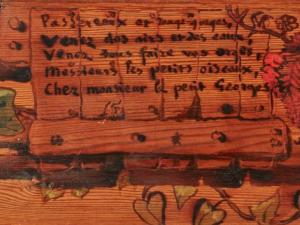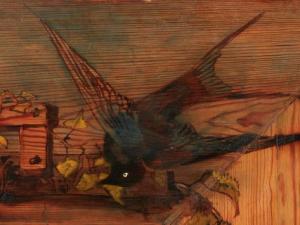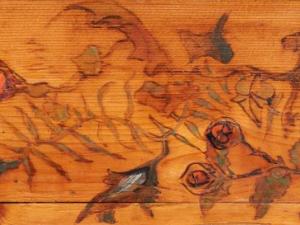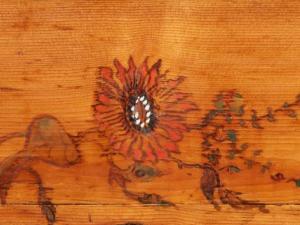Questions about Victor Hugo's life?
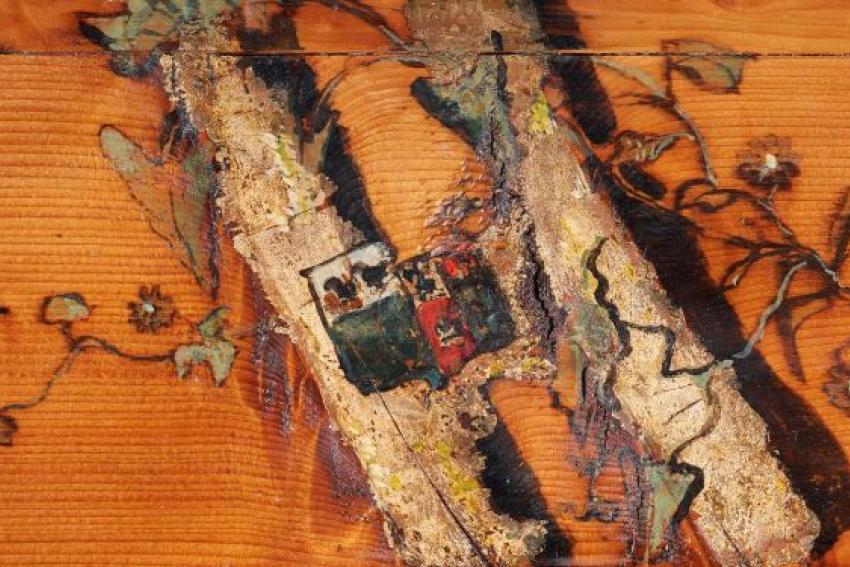

Questions about Victor Hugo's life?
Select one of two timelines by clicking on the links below. For a summary, go to Victor Hugo: 50 key dates. Or for a comprehensive, searchable timeline, go to Victor Hugo research and resources.
Searchable, electronic timeline of Victor Hugo’s life and work. Research and resources
Timeline
Before exile
(1802-1851)
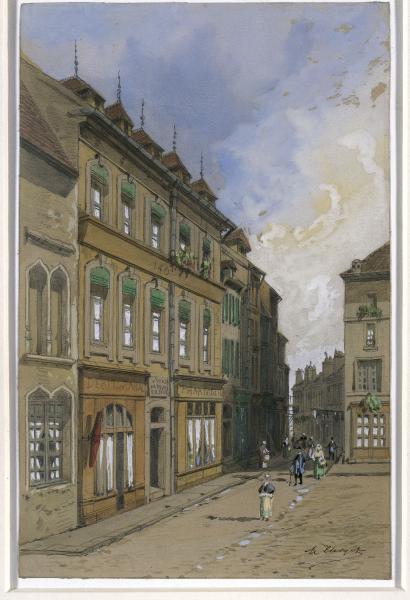
1802
Birth of Victor Hugo on February 26, 1802, in Besançon, where his father Léopold is stationed. His father, who was a soldier in the French Revolution and later in the Empire, pursued most of his career under Joseph Bonaparte. In 1797, he married Sophie Trébuchet, a royalist from the Vendée region. The couple have three children, Abel, Eugène and Victor, but do not get along well and go through a long and troubled period before their definitive separation in 1818.
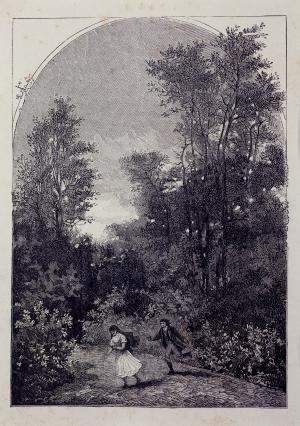
1808
Sophie Hugo and her sons join Léopold in Italy (Naples and Avellino) but the reunion goes badly. Léopold is transferred to Spain. Sophie and her sons return to France and move to the former Feuillantines Convent. This is where Hugo meets Adèle Foucher, who becomes his childhood sweetheart.
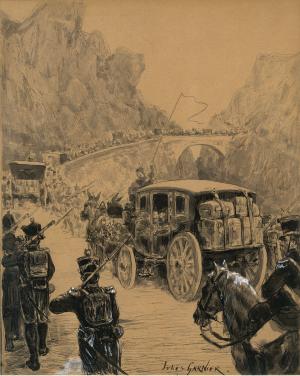
1811-1812
The Hugo family spends a year in Spain, where Léopold, who had been promoted to General in 1809, is the governor of several provinces for King Joseph. Victor is placed in the College of Nobles in Madrid.
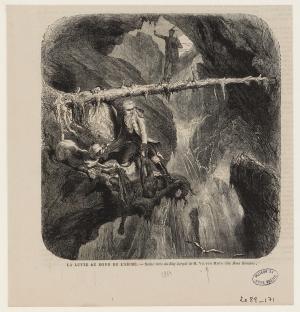
1818
Hugo writes The Virgins of Verdun, the first poem he would publish in a collection, as part of Odes and Ballads (1826). First draft of Bug-Jargal.
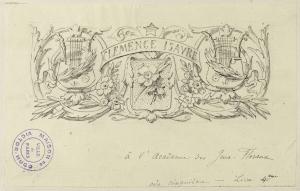
1819
Golden Lily from the Academy of Floral Games, in Toulouse. Publishes Le Conservateur littéraire (The Literary Conservative) magazine with his brothers.
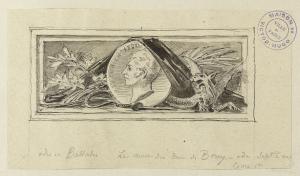
1820
Royal recompense for the ode on the death of the Duke of Berry.
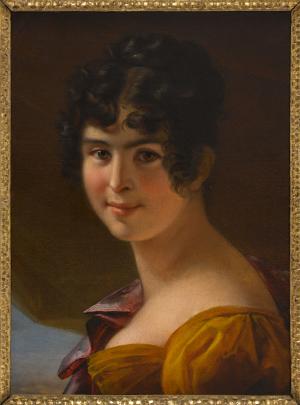
1821
Begins Hans of Iceland. Shortly after the death of his mother, becomes engaged to Adèle Foucher.
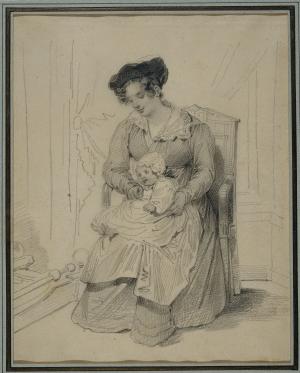
1822
They marry on October 12. They will have five children, four of whom survive to adulthood. Publication of Odes et poésies diverses (Various Odes and Poems).
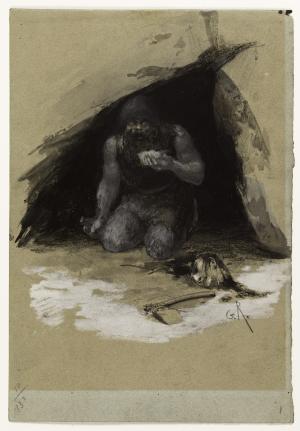
1823
Birth and death of Léopold. Publication of Hans of Iceland. Founding of La Muse française. Hugo becomes a friend of Charles Nodier and starts to attend his salon at the Arsenal Library the following year.
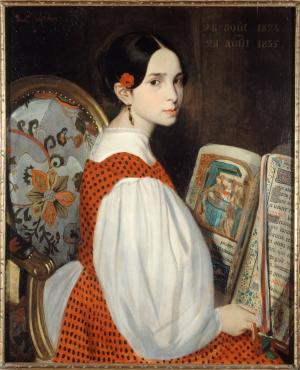
1824
Publication of Nouvelles odes (New Odes). Birth of Léopoldine.
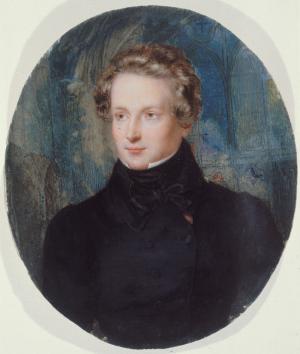
1825
Named Chevalier of the Legion of Honor and invited to the coronation ceremony at Reims, which he glorifies in his Ode sur le sacre de Charles X (Ode on the Coronation of Charles X).
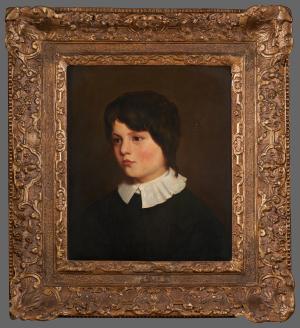
1826
Publication of Odes and Ballads. Birth of Charles.
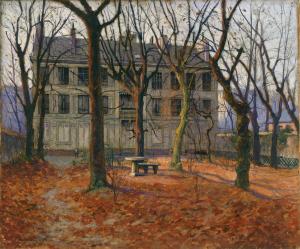
1827
Publication of Cromwell. The play, which was impossible to stage because of its breadth, nonetheless had a preface that became the veritable manifesto of the Romanticism led by Hugo. At his home on Rue Notre-Dame-des-Champs, he played host to the “Coterie,” most notably the painters Louis Boulanger, Achille and Eugène Devéria.
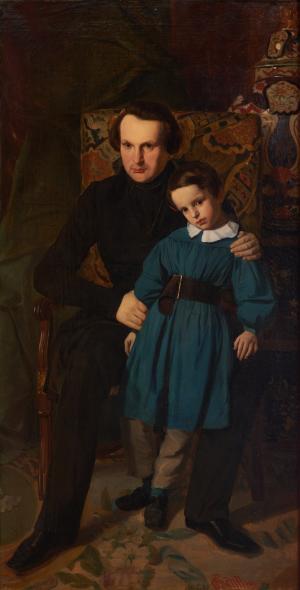
1828
His play Amy Robsart is refused. Birth of Victor (who will be known as François-Victor, starting in 1849).
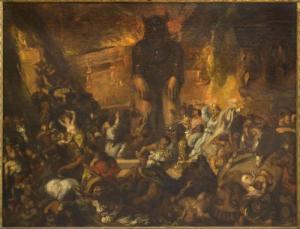
1829
Publication of Orientalia, a collection of poems that will crystallize Romantic imagery and inspire numerous painters, followed by The Last Day of a Condemned Man, a vibrant plaidoyer against the death sentence. His new play Marion de Lorme is prohibited.
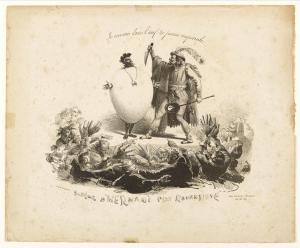
1830
Success of Hernani in spite of the legendary “battle” that opposed Classicists and Romantics. Victor Hugo has too many visitors and is obliged to leave Rue Notre-Dame-des-Champs and move to Rue Jean Goujon. This is where Adèle is born.
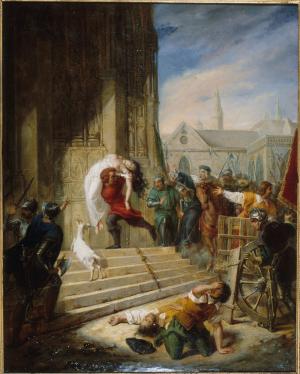
1831
Publication of The Hunchback of Notre Dame, which, in addition to his poetry and plays, consecrates Hugo as the major Romantic novel writer. Creation of Marion de Lorme and publication of the collection entitled Autumn Leaves.
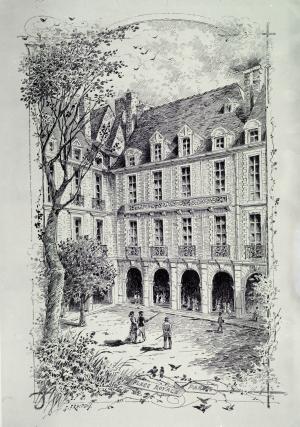
1832
Prohibition of Le Roi s’amuse (The King Amuses Himself) after opening night, since the play is considered offensive to royalty. The trial that follows is determinant for Victor Hugo’s political passion concerning the issue of freedom. The family moves to Place Royale (now Place des Vosges).
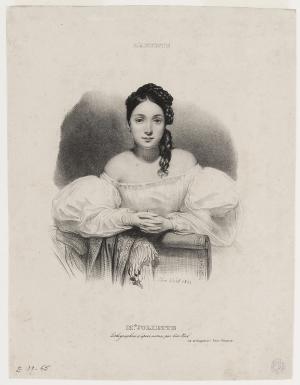
1833
During rehearsals for Lucrèce Borgia, Hugo meets Juliette Drouet, who will become his mistress and, until her death in 1853, will live near him. The play is an immense success. It is followed by Marie Tudor.
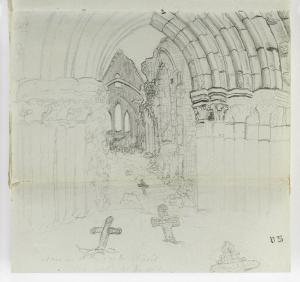
1834
Juliette and Victor adopt the habit of making a summer journey in France. Hugo makes many drawings in his notebooks of these trips. The publication of Claude Gueux confirms Hugo’s commitment to abolishing the death sentence and his awareness of the problem of misery.
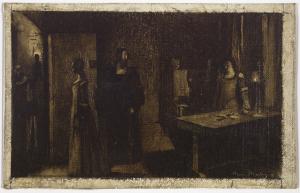
1835
Staging of Angelo, Tyrant of Padua and publication of the collection entitled Songs of the Half Light.
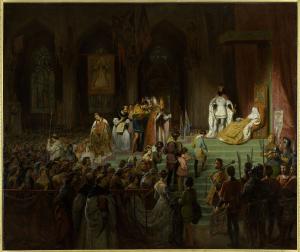
1837
Les Voix intérieures (Inner Voices). On the occasion of the marriage of the Duke of Orleans, son of Louis Philippe, Hugo is promoted to Officer of the Legion of Honor. The prince and his wife present Hugo with the painting by Gillot Saint-Evre entitled Inès de Castro. Travel to Belgium.
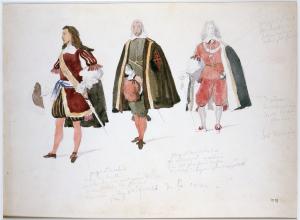
1838
Ruy Blas is staged at the Théâtre de la Renaissance, founded with Alexandre Dumas to present the Romantic repertoire.
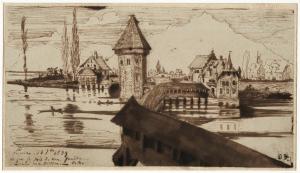
1839
Travel to Alsace, the Rhineland, Switzerland, Provence and Burgundy.
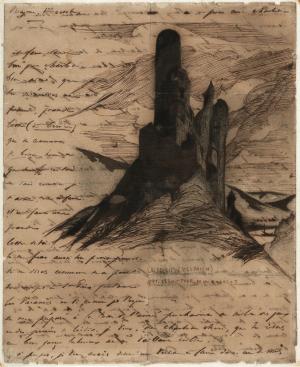
1840
Les Rayons et les Ombres (Beams and Shadows), last poetry collection before 1853. New trip to the Rhine Valley; numerous drawings.
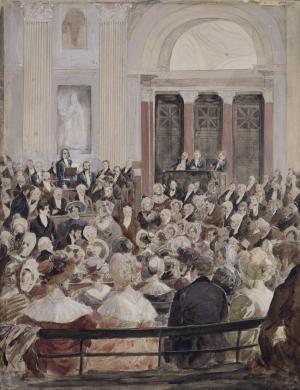
1841
After several failures, Hugo is elected to the French Academy.
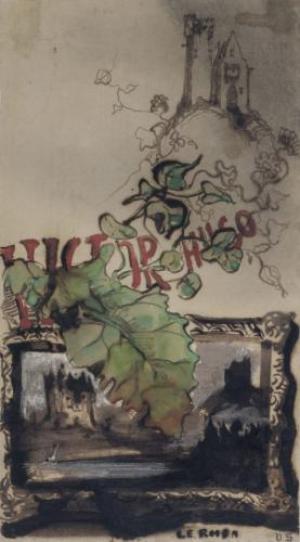
1842
Publication of Le Rhin (The Rhine), a travel diary with a conclusion that announces Victor Hugo’s interest in politics.
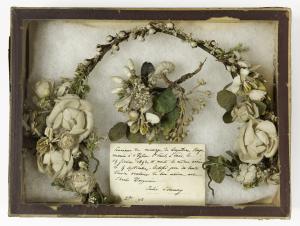
1843
Les Burgraves. Léopoldine marries Charles Vacquerie. Six months later, they drown accidentally in the Seine near Villequier. Victor Hugo is shaken by the news, which he learns about in the newspaper on his return from a trip to Spain. He will not publish further works until 1852.
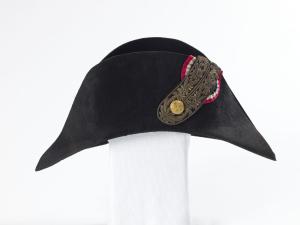
1845
Is named Peer of France. Following the scandal of adultery with Léonie Biard, he begins to write Les Misères (Miseries), which will become Les Misérables.
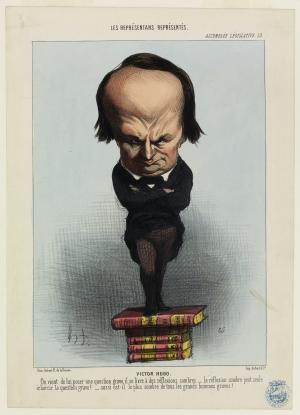
1848
Loyal to the royal family, he advocates the regency of the Duchess of Orleans during the 1848 Revolution but later supports the Republic, although he turns down a ministry in the provisional government. In June, he is elected Deputy of Paris to the Constituent Assembly. Speech on the national workshops, against the death sentence and for freedom of the press. The apartment on Place Royale is very briefly occupied by insurgents; the family leaves it, first for Rue d’Isly and then for Rue de La-Tour-d’Auvergne. Hugo supports the candidacy of Louis Napoleon Bonaparte for President of the Republic.
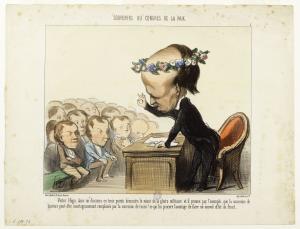
1849
Hugo is elected as the Deputy of Paris to the Legislative Assembly. Speech on misery. Presides over the Convention on Peace.
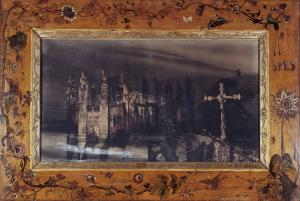
1850
Speech on the freedom of education, the theater and the press and for universal suffrage. He prolongs his summer vacation and installs a real studio in Juliette Drouet’s home, where he makes some of his greatest drawings.
During exile
(1851-1870)
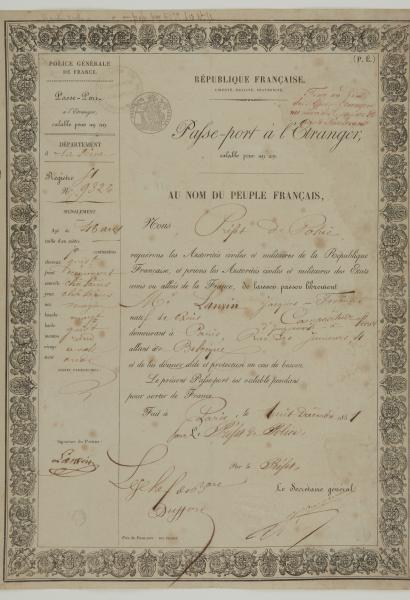
(1851-1870)
On December 2, Louis Napoleon Bonaparte stages a coup d'état since his term cannot be extended; Hugo tries in vain to oppose this action and organizes a resistance. Under threat, he leaves for Brussels on December 11, the start of an exile that will last nineteen years.
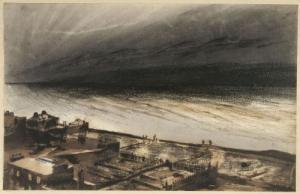
1852
Order expelling Hugo from France. Publication in Brussels of Napoleon the Little, which will oblige him to leave the country in August. The family sells the furniture from the apartment on Rue de la-Tour-d’Auvergne to follow him in exile. They are reunited in Jersey, where Hugo is installed at Marine Terrace.
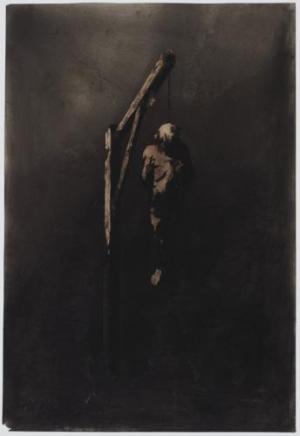
1853-1854
Experiment with rotating tables. Les Châtiments (Punishments). Protests against the execution of John Tapner on Guernsey and draws The Hanged Man, which would henceforth be on display in his study.
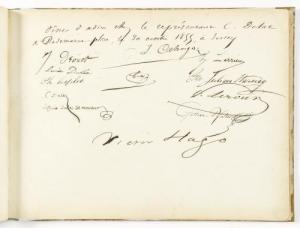
1855
Following the publication by certain outlaws of a letter protesting the rapprochement between Queen Victoria and Napoleon III, Hugo is expelled from Jersey and moves to Guernsey.
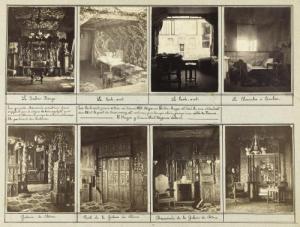
1856
Publication of the collection entitled Les Contemplations, whose success enables the purchase of Hauteville House. For three years, Victor Hugo dedicates himself to decorating the home; at the same time he arranges La Fallue, Juliette Drouet’s first home on the island.
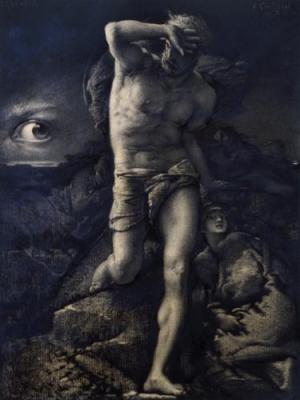
1859
Publication of the first series of The Legend of the Ages. Hugo refuses amnesty by Napoleon III. Continuing his combat against the death penalty, he intervenes in favor of John Brown, the American abolitionist.
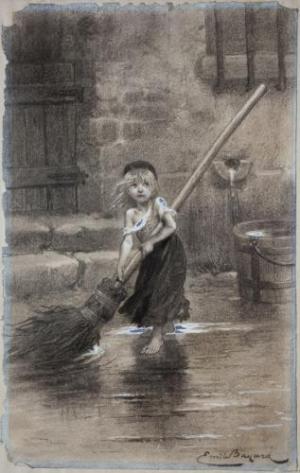
1860-1861
Hugo dedicates most of his time to writing his novel Les Misérables. Charles leaves Guernsey.
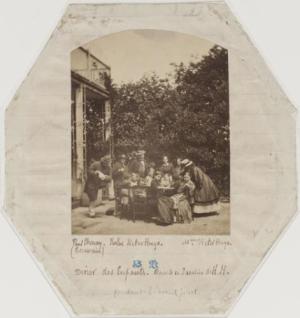
1862
Les Misérables appears and is an immense success. First meal for poor children at Hauteville House. Hugo installs the Lookout (or “Crystal Room”) on the roof of Hauteville House. He adopts the habit of an annual trip with Juliette on the continent.
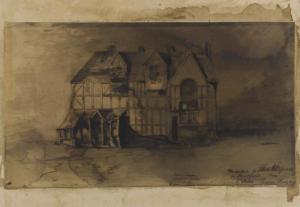
1864
Publication of William Shakespeare. Juliette Drouet installs herself at Hauteville II.
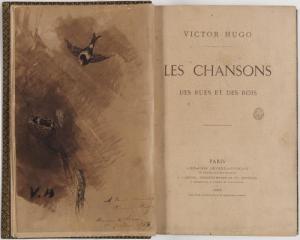
1865
After the death of his fiancée, Emilie de Putron, François-Victor leaves Guernsey in turn. Charles Hugo marries Alice Lehaene and moves to Brussels, where Madame Hugo is now living. Publication of the collection entitled Songs of Street and Wood.
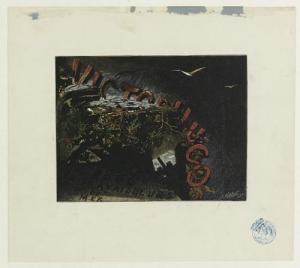
1866
Publication of the novel Toilers of the Sea, which is a tribute to Guernsey and its inhabitants.
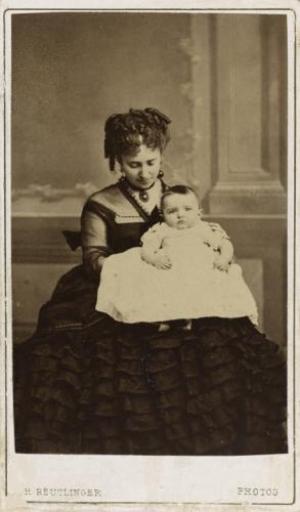
1868
Birth of Georges, the son of Charles, in Brussels, followed by the death of Madame Hugo. The poet accompanies the coffin to the French border.
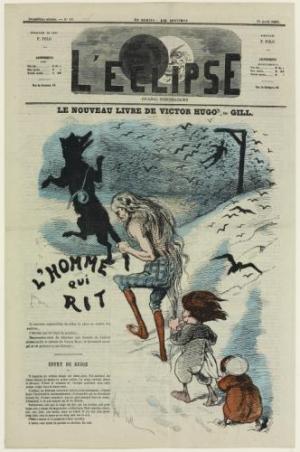
1869
Publication of a new novel, The Man Who Laughs. Foundation in Paris of the newspaper Le Rappel by Charles and François-Victor Hugo, Paul Meurice and Auguste Vacquerie. Birth of Jeanne, the daughter of Charles.
After exile
(1870-1885)
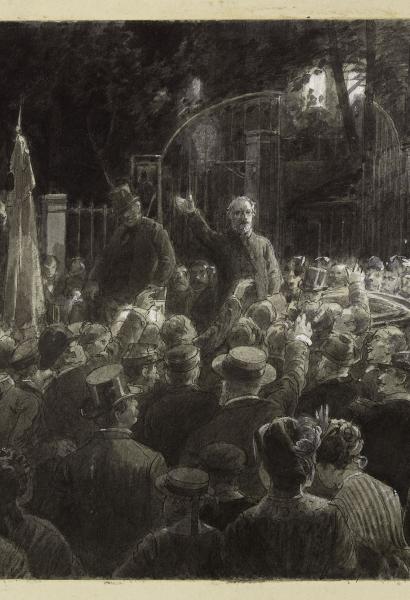
1870
On July 14, Hugo plants the oak tree of the United States of Europe in the garden of Hauteville House before leaving Guernsey for Brussels to wait for the fall of the Empire. When the Republic is proclaimed, he returns to France, where he is welcomed like a hero. He installs himself in Paul Meurice’s home. French edition of Les Châtiments. Hugo and his family remain in Paris during the siege.
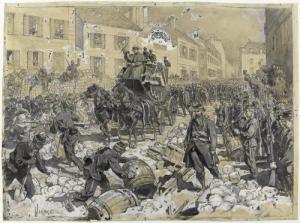
1871
Elected as a deputy from Paris, Hugo follows the Chamber to Bordeaux, where he resigns one month later. Death of his son Charles. Following this death, he finds himself in Brussels during the Commune but is expelled for having offered asylum to the Communards. He stays in Vianden and then returns to Paris, where he moves to 66 Rue La Rochefoucauld. Victor Hugo frequently welcomes political, literary and artistic celebrities to his home. Georges and Jeanne are associated to every moment of his existence.
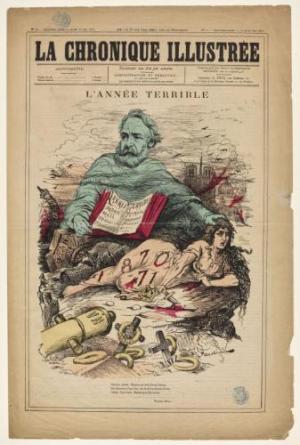
1872
His daughter Adèle, who has gone mad, is brought back to France and placed in a rest home. Stays in Guernsey for a year, until July 1873, where he writes his last novel, Ninety-Three. Publication of L’Année terrible (The Terrible Year).
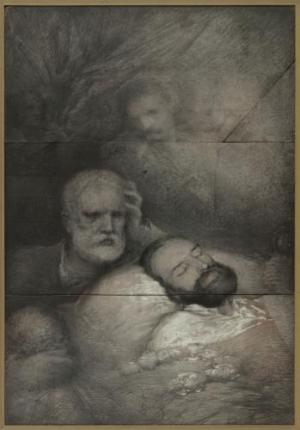
1873
Back in Paris, he moves to Villa Montmorency in Auteuil, then to Juliette Drouet’s home on 55 Rue Pigalle. Revival of Marion de Lorme at the Comédie-Française. Death of his second son, François-Victor.
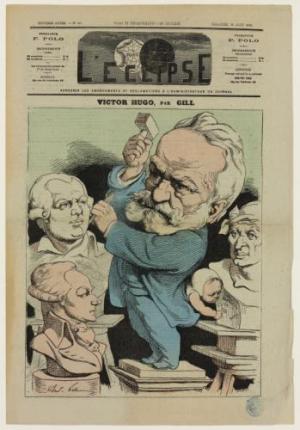
1874
Release of Ninety-Three and My Sons. Moves to 21 Rue de Clichy.
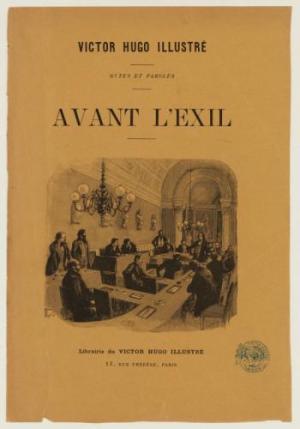
1875
Publication of the first collections of his political positions and interventions, Deeds and Words I and II.
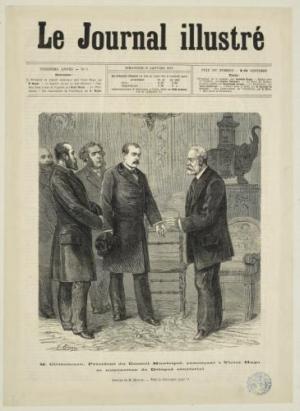
1876
Elected as a senator, he intervenes in favor of amnesty for the Communards. Deeds and Words III.
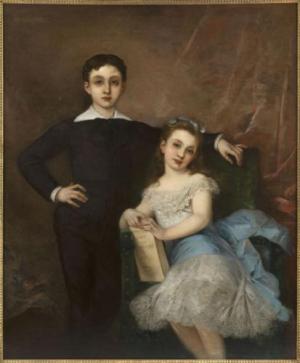
1877
Charles’ widow Alice remarries the politician Édouard Lockroy; Hugo keeps guardianship of his grandchildren. Release of The Art of Being a Grandfather and History of a Crime. Revival of Hernani at the Comédie-Française, with Sarah Bernhardt.
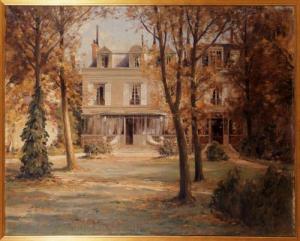
1878
Publication of the poem Le Pape (The Pope). Last stay in Guernsey to recuperate following a stroke. Returns to 130 Avenue d’Eylau, which will be his last home.
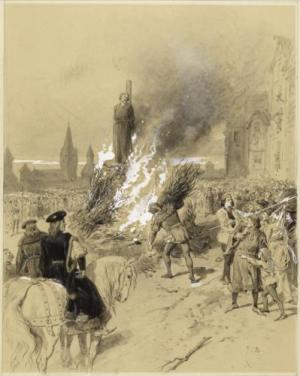
1879
Publication of La Pitié suprême (Supreme Pity). Revival of Ruy Blas, which becomes part of the Comédie-Française repertoire.
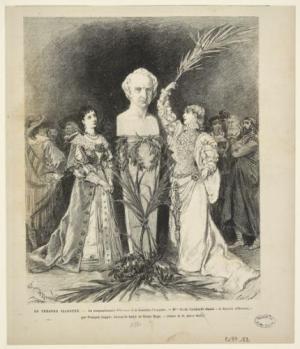
1880
Publication of Religions and Religion and L’ Âne (The Donkey). Celebration of the fiftieth anniversary of Hernani.
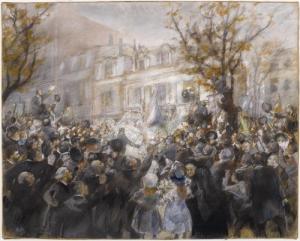
1881
So-called “Festival of February 7, 1881”, celebrating Victor Hugo’s eightieth year; hundreds of thousands of people parade under his windows to pay him tribute. Publication of The Four Winds of the Spirit. The part of Avenue d’Eylau where the poet lives is renamed “Avenue Victor Hugo”.
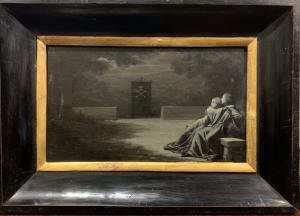
1882
Publication of the play Torquemada. Is re-elected to the Senate.
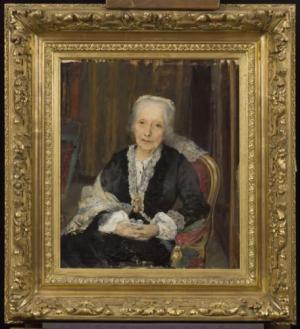
1883
Meeting with Rodin, who wants to make a bust of him. Death of Juliette Drouet on May 11. Writes L’Archipel de la Manche (The Channel Islands), which henceforth serves as a prologue to Toilers of the Sea.
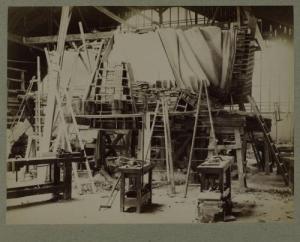
1884
Hugo goes to see the Statue of Liberty in Bartholdi’s workshop. It is his last appearance in public.
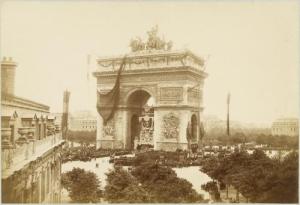
1885
Death of Victor Hugo on May 22. On June first, national funeral and entombing in the Pantheon .

